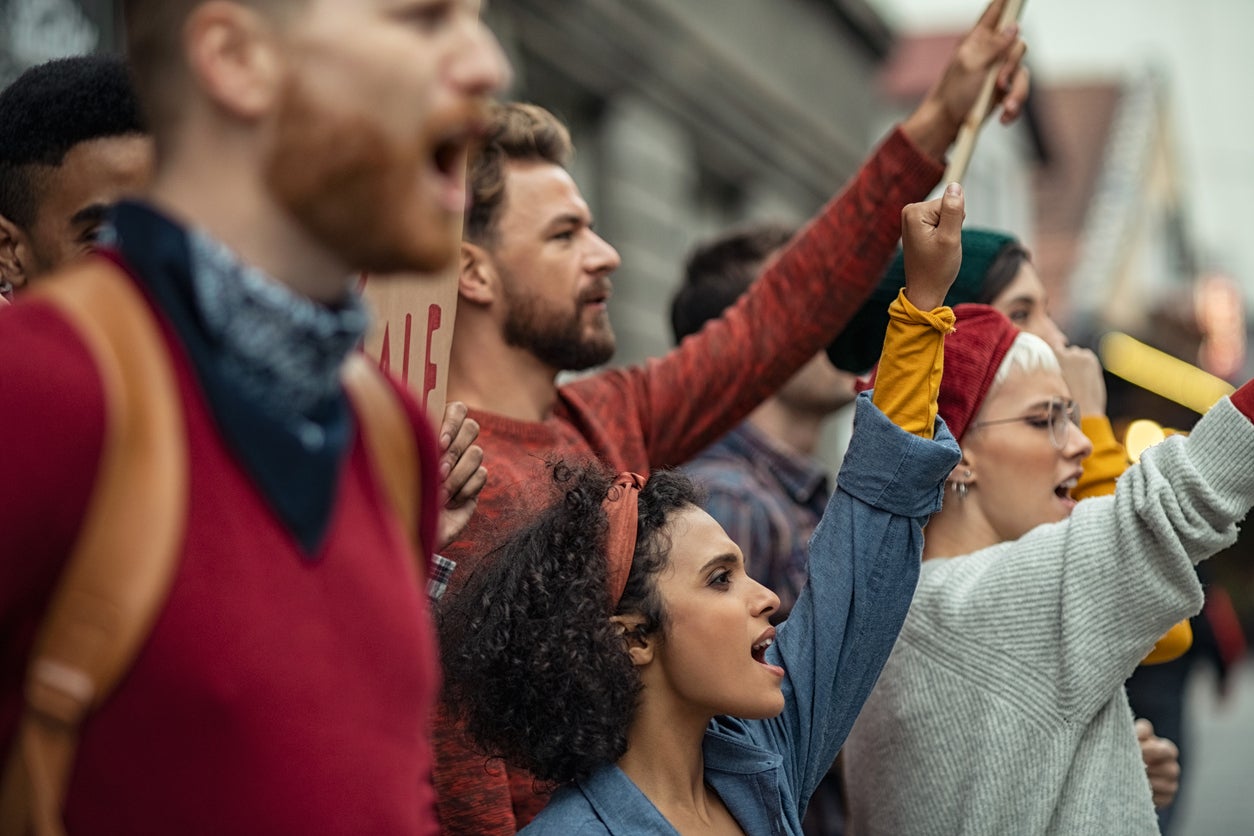Let’s move beyond local election despair – it’s up to activists and smaller parties to stop history repeating itself
One of the biggest risk factors right now is despondency, but the hard right is not impregnable and we must not give up


Your support helps us to tell the story
From reproductive rights to climate change to Big Tech, The Independent is on the ground when the story is developing. Whether it's investigating the financials of Elon Musk's pro-Trump PAC or producing our latest documentary, 'The A Word', which shines a light on the American women fighting for reproductive rights, we know how important it is to parse out the facts from the messaging.
At such a critical moment in US history, we need reporters on the ground. Your donation allows us to keep sending journalists to speak to both sides of the story.
The Independent is trusted by Americans across the entire political spectrum. And unlike many other quality news outlets, we choose not to lock Americans out of our reporting and analysis with paywalls. We believe quality journalism should be available to everyone, paid for by those who can afford it.
Your support makes all the difference.Conservatives responding to the march of the far-right by embracing their rhetoric and preoccupations. The Labour party shredding itself just when strong opposition is most needed. Political divisions so fierce that friendships across those divides become unthinkable. News of British gunboats dispatched to a territorial dispute. Any of this sound familiar?
For the two of us, who reached voting age as Margaret Thatcher came to power, there’s an inescapable sense of history repeating itself. Of course, it’s not exactly the same. There was no social media then to nourish extremism and hatred as if on steroids.
We’re not big believers in the notion that age automatically brings wisdom. Sometimes age comes on its own. Since setting up the Women’s Equality Party (WEP) in 2015, we have learned more from younger activists than they from us. However, last week’s election boost for a Tory party skewing ever further to the right – and the agonised responses these are drawing across the spectrum of progressive politics – prompt us to share some urgent insights.
We set up the party precisely because we foresaw the fracturing of old politics and knew what this would mean – the rise of populism, the triumph of punchy slogans over the complexity of truth, the scapegoating of the already oppressed. It wasn’t that we believed our efforts could halt this dangerous cycle, rather that we hoped to harness some of its energy to reach a goal that throughout our lives has shimmered on the horizon: gender equality.
Women of our age grew up expecting this happy state to materialise any day, even as the world issued brutal correctives. Both of us experienced assault, harassment and discrimination on the basis of sex and/or sexuality.
We witnessed progress, but also its inverse. If we hadn’t already grasped that such gains could be fragile, the decade of rising inequality under the UK’s first female prime minister drove home that message and several others besides. It could never be enough for a few women to break through; women shaped by a patriarchal culture didn’t always use their power to advance their sisters or understand that to do so would benefit everyone, men included.
There were other key learnings from that period. Thatcherism was a response to the complacency of old politics that, whatever logo it wears, preserves the system rather than fixing its many flaws or opening doors to the voices and perspectives representative democracy needs.
And progress doesn’t just happen. It is the product of ceaseless activism, the kind that after every setback picks itself up, dusts itself down and rejoins the fray.
One of the biggest risk factors right now is despair. This too we have both seen before, people eyeing a seemingly impregnable hard right and giving up. They ask anguished questions. How is it possible that voters reward seemingly obvious corruption, proud inhumanity? You can see their point. Both of us wept when we heard the Hartlepool by-election results, not because our candidate Gemma Evans lost – we knew she would; she ran not to win but to highlight the pandemic of violence against women and girls that mainstream politics fails again and again to tackle.
During the London mayoral race, candidates lined up to declare this battle a priority, but only one mayoral candidate, our own WEP leader Mandu Reid, showed up for the only hustings focused on the subject. We wept over Hartlepool because another candidate, convicted sex offender Christopher Killick, received more votes than Gemma did. It is not hard to see why some people could view each vote for Killick as a declaration of hatred for women.
Misogyny, racism, hostility to the “other”, these things have never gone away, even at times of comparative harmony. Yet hatreds aren’t innate; they are stoked and directed. These days the propagandists’ job is made easier than ever with vicious tweets and sensationalist Facebook posts travelling faster and further than informed opinion or, that most devalued of currencies, fact.
The decay of mainstream media, which mirrored old politics in its smugness and now hangs twisting in the winds of change, is intensifying this effect as it tries to survive by becoming ever more clickbait-y. GB News will likely pose a direct threat to the equality agenda – with one of its founders describing the current news debate in Britain as “woke and out of touch” – but so too does the avidity with which old media amplifies toxic views and trends.
These are challenging times for activism, but by no means all challenges are external. Polarisation breeds polarisation. It is natural to respond to hostility with hostility, to meet hatred with burning rage, to declare no tolerance for divergent views. The problem is that effective advocacy involves persuasion, movement building, plurality not purity. There must always be clear red lines – but there must also be compromises, a recognition that working with people who agree on much, but not everything, is essential to making change.
This is why we started a party that set out to collaborate with other parties, that welcomes members of other parties, that has proposed joint candidacies with other parties. It is why from the outset the party has tried – by no means with unalloyed success – to take the heat out of internal debates, not by minimising flashpoint issues, but by recognising their seriousness and complexity.
The current extreme cycle makes this approach harder still – yet more vital than ever. We celebrated the positives last week. The election of Joanne Anderson as Mayor of Liverpool and the people of Bletchley and Fenny Stratford are now lucky to have Amanda Carter-Philpott as a town councillor representing WEP and making sure the needs of women and children are not forgotten.
Let’s take one final lesson from the past. Cycles don’t last forever but history risks repeating. Activists, in parties and outside them, can make sure it doesn’t.
Sandi Toksvig is a writer, comedian, broadcaster, actor, podcaster, TV presenter and producer
Catherine Mayer is a writer, journalist, activist, speaker
They are both co-founders of the Women’s Equality Party and Primadonna Festival
Join our commenting forum
Join thought-provoking conversations, follow other Independent readers and see their replies
Comments